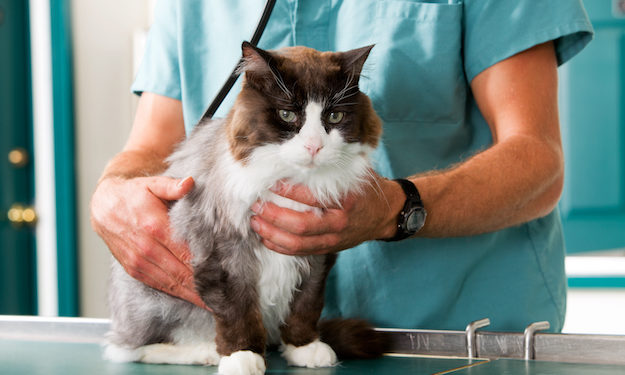Life as an Overnight Veterinarian

Overnights are hard.
Forcing yourself awake for upwards of sixteen hour shifts is difficult. Missing family dinners, children’s bedtimes, and all those wonderful REM sleeps and dreams is challenging. Calls, walk-ins, procedures, a never-ending list of questions, dose changes, and tweaking of treatment sheets is tenuous in the wee hours of the night. Biologically speaking, the human body’s circadian rhythm has been engineered to require this nighttime period of rest for wound healing, muscle resting, food digestion, and mental health. Studies have shown that overnights “increase[s] the risk of developing diabetes, heart disease, and obesity.” Not to mention other side effects such as sleep disorders, fatigue, “crankiness and warped perspective” and the potential risks of driving home while sleep deprived. Our technicians are hands on with every patient in the ICU hourly throughout the night walking them, hand feeding them, making sure their IV lines are not tangled, and doing caretaker tasks that are not always seen. Gently cleaning the guck from a patient’s eyes, giving their fur a brush to get a mat out, bathing their behind if they’re sore from diarrhea, performing passive range of motion and massage.
When you mix this overnight lifestyle with the strain of emergency medicine itself; trauma cases, heartbroken owners, young puppies without body reserves of their older counterparts, elderly housemates whose bodies cannot function anymore, pets who we throw every type of medication, blood transfusion, or emergency surgery at to try to just get them better; all make the scene out to be a recipe for disaster.
So how do the thirty or so night shift employees just at Bulger Veterinary Hospital alone cope with this? Does it involve copious amounts of coffee and energy drinks? Sometimes. Does it entail late night cookie and food orders? Intermittently. Does it require an understanding family who will have food cooked, black out shades drawn, and empathy for missing those family gatherings or excusing a grumpy, sleep deprived outburst? Most definitely. For me, I credit the coping mechanisms we most often employ as being purely connected to us all having a common goal, the goal of being an advocate for animals and wanting so badly to get them better and do what is best for them. Then, it’s the friendships and connections you make with your team who share this same goal.
The most memorable times for me throughout my career have been those non-specific, three am connections you make with your work pals who are more than just employees, they are your lifeline, your second set of eyes, your comedy break when you need it. It’s the overnight dance parties we have to keep us awake. It’s making silly voices at the animals and giving them some extra play time or belly rubs. It’s taking a break to let a few select patients run free in the ICU. It’s laying down in the run with a big dog who is missing home. It’s holding our own pets closer and bringing them to work with us so we can have our own personal mini therapy session. It’s the owners who are exceptionally thankful and grateful that we have treated their family as our own. It’s finally seeing a sick patient with a little spark and tail wag. Then, when they finally do reunite with their family after several nights in the ICU, watching the reunion is indescribable.
I don’t think I need one specific memorable overnight, it’s all of them put together.
Resources:
Article: Daytime meals may reduce health risks of night shift workers